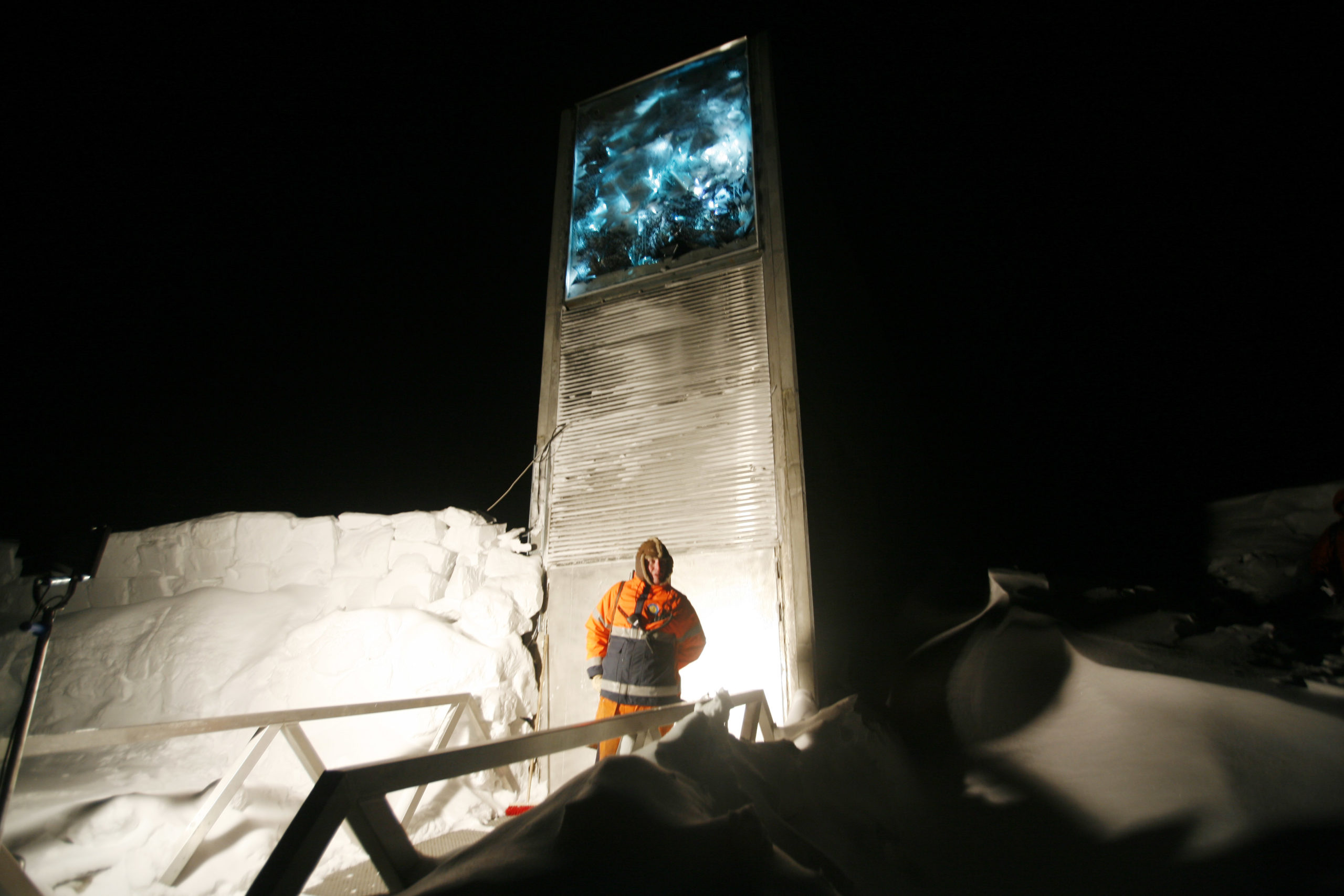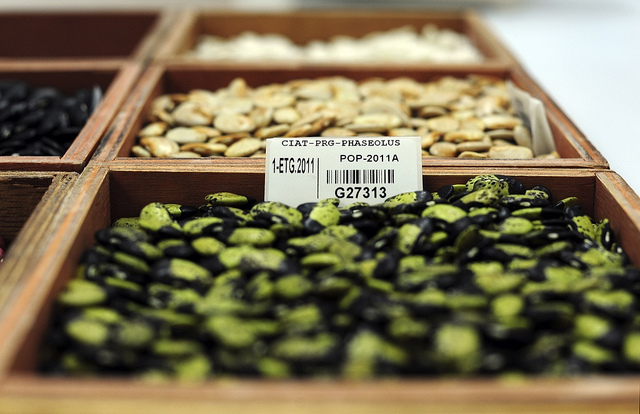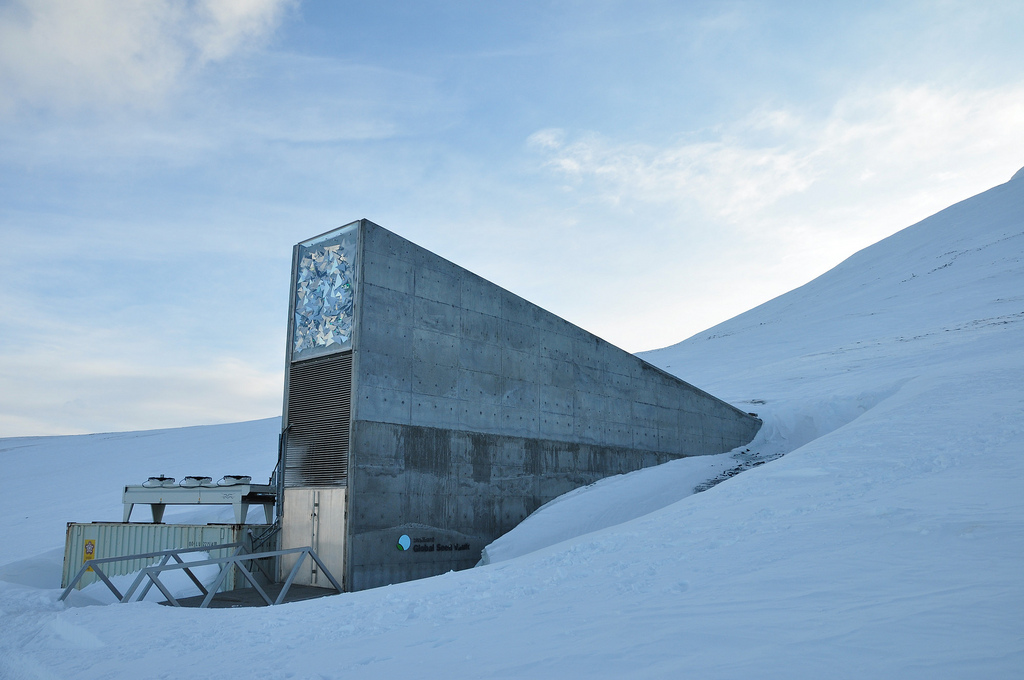This week marks six years since the Svalbard Seed Vault opened to serve as an agricultural Noah’s Ark for humanity. Within its walls, scientists have collected nearly one million seeds from all over the world — just in case. Now, they’re adding many more.
According to National Geographic magazine, the vault just accepted 20,000 new types of crops, bringing the final tally up to 820,619 varieties. The idea behind the vault is twofold: preserve rare species that are going extinct because of climate change and human interference, and offer “insurance” in the case of a catastrophic, agriculture-destroying global event.

AP Photo/John McConnico.
So, what was important enough to add? First and foremost, there are almost 600 new types of barley, many of which are used to make beer. A consortium of Japanese researchers — who were spurred to send along their samples after the 2011 tsunami — contributed the various crops, including one that was grown aboard the ISS to make a special limited edition “space beer” sold by Sapporo.

The beans. Image via Global Crop Diversity Trust.
Then there were the beans — 514 in all — deposited by the Brazilian Agricultural Research Corporation. And the 200 species of wild potatoes, many of which are now threatened because of climate change. Types of wheat, maize, and other starches were also inaugurated into the vault, where they’ll all be stored at zero degrees inside of thick sealed envelopes.
The issue of who owns these seeds is actually pretty interesting. Since there’s a whole network of organisations and countries which have deposited samples, each party must agree to the International Seed Treaty, which was created when the vault was first established. It states that each depositing group can access its own seeds, but no one can access anyone else’s library. It’s just like a normal bank — each party has access only to its own account.

Why Svalbard? There are a number of reasons. First of all, it’s cold, which means it takes less energy to keep the seeds at zero degrees. It’s also located in a politically stable and remote part of the world, which means that there are fewer hazards posed by messy humanity. And under international treaty, military activity is forbidden there.
In other words, it’s just boring, cold, and remote enough to be safe. [National Geographic]
